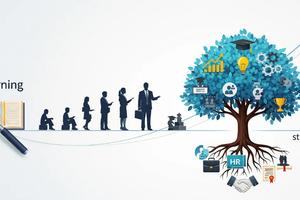What is Executive Coaching | A Complete Comprehensive Guide

Key Takeaways
Essential insights to remember
Executive coaching is performance-focused, not remedial. Unlike life coaching or mentoring, executive coaching specifically targets leadership performance and organizational impact. It's designed for high-performing leaders who want to enhance their skills further, not just those who are struggling.
The coaching process follows a structured approach. It involves initial assessment, goal setting, action planning, ongoing sessions, and continuous feedback. Sessions typically last 60-90 minutes every 2-4 weeks over several months to a year, with accountability measures built in throughout.
Key benefits include improved decision-making, communication skills, and self-awareness. Executive coaching helps leaders identify blind spots, make more strategic decisions, and develop the emotional intelligence needed for effective leadership in today's business environment.
Success requires the right coach-client fit and commitment. Choose a coach with relevant credentials (like ICF certification), industry experience, and compatible communication style. However, coaching only works when leaders are open to change and committed to following through on action steps.
Executive coaching delivers measurable organizational impact. The article emphasizes that when leaders improve through coaching, it creates a ripple effect throughout the entire organization—boosting productivity, employee morale, and overall company performance.
If you've ever wondered how top CEOs, startup founders, or high-level managers keep pushing their limits and hitting their goals, you might be surprised to learn there's often someone behind the scenes guiding them. That someone is an executive coach.
Executive coaching isn't just a trendy buzzword floating around the corporate world—it's a practical, results-driven process designed to help leaders sharpen their skills, grow their confidence, and unlock their full potential. In today's fast-paced, high-stakes business environment, it's not a luxury—it's a competitive advantage.
Understanding the Basics of Executive Coaching
Definition of Executive Coaching
At its core, executive coaching is a personalized, one-on-one professional development process aimed at leaders, executives, and high-potential professionals. Think of it as having a personal trainer—but instead of sculpting your body, they help you sculpt your leadership skills, strategic thinking, and problem-solving abilities.
How It Differs from Life Coaching or Mentoring
While life coaching often focuses on overall personal fulfillment and mentoring usually involves guidance from someone with industry experience, executive coaching is laser-focused on leadership performance and organizational impact. It's less about telling you what to do and more about helping you find your own best answers through reflection, questioning, and actionable strategies.
The Core Purpose of Executive Coaching
Enhancing Leadership Skills
The number one reason executives seek coaching is to become better leaders. This could mean learning how to motivate teams, delegate effectively, or inspire innovation. Strong leadership development is crucial for protecting your business from potential challenges and ensuring long-term success.
Driving Organizational Success
A great leader has a ripple effect on the entire organization. When a CEO improves decision-making or communication, the whole company benefits—from improved productivity to better employee morale. This organizational impact is why many companies invest in business consulting services alongside executive coaching.
Supporting Personal Growth for Executives
Executive coaching isn't just about the boardroom—it's also about personal development. Self-awareness, emotional intelligence, and resilience are all common coaching goals. For executives facing high-pressure situations, this personal growth component can be especially valuable in managing financial stress that often comes with leadership roles.
How Executive Coaching Works
The Coaching Process Step-by-Step
- Initial Assessment – Understanding current strengths, weaknesses, and leadership style.
- Goal Setting – Identifying what success looks like.
- Action Planning – Creating a roadmap to reach those goals.
- Ongoing Coaching Sessions – Regular check-ins to track progress.
- Feedback & Adjustment – Refining strategies as needed.
Typical Duration and Structure of Sessions
Executive coaching can last anywhere from a few months to over a year, depending on the goals. Sessions often run for 60–90 minutes every two to four weeks, with homework or action steps in between.
The Role of the Executive Coach
The coach isn't there to give you a cheat sheet—they're there to challenge your thinking, provide honest feedback, and keep you accountable. Many successful coaches follow the importance of continual professional development for teachers, applying similar principles to executive development.
Key Benefits of Executive Coaching
Improved Decision-Making
When you have a sounding board to test ideas, your decisions tend to be more strategic and well-informed. This is particularly valuable when scaling your business and avoiding common pitfalls.
Better Communication Skills
Coaching often focuses on how to convey ideas clearly, listen actively, and manage difficult conversations. For healthcare leaders, this is especially important in effective communication strategies for nurse leaders.
Increased Self-Awareness
Leaders sometimes have blind spots—behaviors or habits they're not aware of that may be holding them back. Coaching helps shine a light on these. If you want to get to know more about Pedrovazpaulo Executive Coaching you must read it now.
Boosted Confidence and Performance
As skills improve, so does confidence. And with confidence comes better performance.
Who Needs Executive Coaching?
C-Suite Leaders
CEOs, CFOs, COOs—anyone making big-picture decisions benefits from having a trusted advisor to sharpen their leadership edge.
Mid-Level Managers Preparing for Promotion
Aspiring leaders can use coaching to develop the skills they'll need for higher roles. This is particularly important for those looking to advance in specialized fields like online masters in athletic administration.
Entrepreneurs and Business Owners
Running your own business can be lonely. An executive coach provides perspective and accountability. For those just starting out, combining coaching with practical advice on launching your grocery store can be invaluable.
Common Misconceptions About Executive Coaching
"It's Only for Struggling Leaders"
This is like saying personal trainers are only for out-of-shape people. Many top-performing leaders work with coaches to maintain and enhance their performance.
"It's Just Expensive Advice"
Coaching isn't about handing you tips—it's a collaborative process that involves goal setting, accountability, and measurable outcomes.
The Executive Coaching Process in Action
Setting Clear Goals
Vague goals like "be a better leader" don't cut it. Coaches help you set specific, measurable objectives.
Using Assessment Tools
From personality tests to 360-degree feedback surveys, these tools provide insights into leadership style and impact.
Developing a Customized Action Plan
No two leaders are the same, so every action plan is tailored to the individual's needs and the organization's goals.
Qualities of an Effective Executive Coach
Experience and Expertise
The best coaches often have a background in leadership themselves, which gives them real-world insight.
Strong Communication Skills
A great coach knows how to listen deeply and ask powerful questions that spark new thinking.
Ability to Challenge and Inspire
They push you beyond your comfort zone—but in a way that's encouraging, not discouraging.
Executive Coaching vs. Business Consulting
Here's the key difference: consultants analyze problems and give you solutions. Coaches help you find your own solutions and develop the skills to solve problems in the future. For a deeper understanding of business consulting approaches, check out Pedro Paulo Executive Coaching.
How to Choose the Right Executive Coach
Check Credentials and Certifications
Look for credentials from reputable coaching organizations like the International Coach Federation (ICF).
Look for Industry Experience
A coach who understands your industry can offer more relevant insights.
Evaluate Coaching Style and Compatibility
The best results come when there's trust and good chemistry between you and your coach.
Potential Challenges in Executive Coaching
Resistance to Change
Some leaders are set in their ways. Successful coaching requires openness to new ideas.
Unrealistic Expectations
Coaching is not an overnight fix—it's a process that requires effort and patience.
Lack of Follow-Through
Without commitment to action steps, progress will stall.
The Future of Executive Coaching
AI and Digital Coaching Platforms
Technology is making coaching more accessible, with AI tools providing instant feedback and support. The integration of AI for paralegals shows how artificial intelligence is transforming professional development across industries.
Remote Coaching Trends
Virtual coaching sessions are now common, allowing for more flexibility.
Focus on Emotional Intelligence
Future coaching will likely emphasize empathy, adaptability, and human-centered leadership.
Success Stories from Executive Coaching
One tech startup CEO credited coaching with helping them scale their company from 10 employees to 150 in under three years. Another executive used coaching to navigate a company merger smoothly, avoiding layoffs and boosting employee morale.
Conclusion
Executive coaching is more than just a corporate perk—it's a powerful tool for personal and professional growth. Whether you're an aspiring leader or a seasoned executive, working with a skilled coach can sharpen your skills, boost your confidence, and ultimately help you achieve both your career and business goals.
For those interested in exploring professional development further, consider reading our quote of the day for daily inspiration, or explore our comprehensive tools section for additional resources to support your leadership journey.





